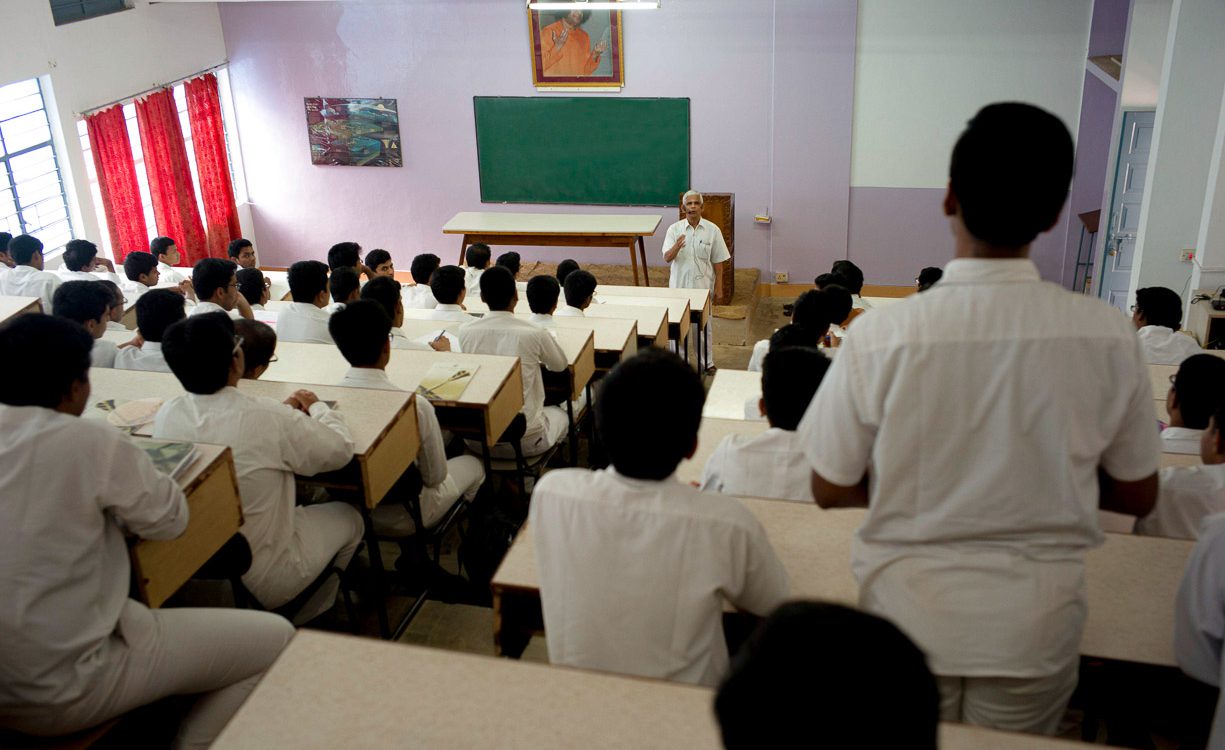There are several factors that have contributed to the consistent high standard of academic excellence achieved by the Institute.
Infrastructure & Facilities
From computer-aided instruction to team teaching and video conferencing, the University provides students with all amenities to excel at their studies. The University libraries house reference and other study materials to aid students in every way. Every academic department has laboratories and related facilities that complement the theoretical learning experience with the practical aspects.
Design of Academic Programmes
All undergraduate courses in the Sciences and Arts require students to study courses that are across multiple disciplines. For instance, in the first two years, a student pursuing a B.Sc. degree programme in Physics, will also study Mathematics and Chemistry with equal emphasis. This deepens students’ knowledge on subjects closely related to their core discipline.
Choice-based Credit system
Students pursuing courses in the Sciences and Management have the opportunity to choose electives, which fosters their academic development.
Question Paper Reforms
The question papers for examinations at SSSIHL are designed to cover the entire syllabus. They are not entirely memory-based and also test students’ analytical skills, and their ability to synthesize knowledge, creativity and originality.
Continuous Internal Evaluation (CIE)
CIE is a measure whereby students are evaluated on an ongoing basis throughout each semester of their studies. Unlike the End of Semester Examinations (ESE), CIE requires that students take a series of tests on a monthly basis. CIE comprises of mid-semester tests, assignments, case studies, etc. The components of CIE are designed by the faculty to ensure that students have a sound and conceptual understanding of the subject.
Experiential Learning
The University is very dedicated to the cause of transforming theoretical knowledge into skills. For students studying the Sciences, the afternoon classes are devoted to laboratory sessions. Those pursuing the Social Sciences, Arts, and Management disciplines dedicate 50% of their weekly class time learning to internalize the concepts studied. This is done through case-studies, self feedback exercises, role-plays, management games, group discussions, outdoor exercises, etc.
Research with Social Relevance
The Revered Founder Chancellor would constantly emphasise that bookish knowledge must be translated into practical knowledge that ultimately benefits society. Consequently, all research projects at SSSIHL are of social relevance, and are useful in medical diagnostics, agricultural biotechnology, governance, social responsibility, sustainable development, etc.
Many of the research projects undertaken by the departments of the University are multi-disciplinary in nature.
Mentoring System
The University has a mentoring system whereby a resident teacher mentors up to ten students every year. This helps the student to excel in both academic as well as co-curricular activities of the University. These teachers reside in the hostel or on the campus where the students live throughout the academic year. This facilitates better rapport between teachers and students, and creates an environment for the teacher to help the student in all aspects of the experience at SSSIHL.
Distinguished Visiting Faculty
Inspired by the vision of the Revered Founder Chancellor, Bhagawan Sri Sathya Sai Baba, eminent educationists and industrialists from across the globe visit the campuses every year, to share their vast teaching and industry experience with students. Thus, the teaching and research at the University is aided and enhanced on a continual basis.
Leadership by Example
The holistic evaluation system at the University incorporates both curricular and co-curricular components (such as sports, culture, service and discipline), and is designed to foster unity, teamwork and a spirit of sacrifice amongst both faculty members and students. As a result, students are consistently provided with opportunities to develop their potential for leadership, teamwork, ethical and moral behavior. A strict disciplined routine (both academic and residential), which the teachers themselves follow, sets a precendent for students to follow.



